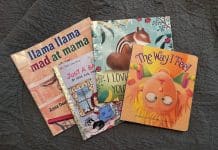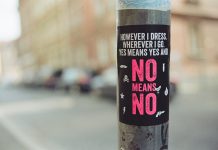This is the first of a 3 part series about Foster Care. April is National Child Abuse Prevention Month and it’s followed in May by National Foster Care Month, so what better time to dive into the world of foster parenting.
As a social worker, I have come to know many foster parents and what I have learned is that foster parents are truly incredible people.
Foster parents take in kids who have been abused or neglected to the point of needing to be removed from their homes and they love and nurture and keep kids safe all while knowing that the child they have taken in may return to that home they needed to be removed from. Social workers ask foster parents to treat children in their homes like they belong there, but also support the parents that have caused their removal, their trauma, and be prepared to support that return. It’s an emotional and challenging quest, foster parenting.
So why do it?
The rewards you receive as a foster parents are not tangible. You can’t count them on your fingers or see them on the shelf. You can only feel them in your heart.
One family I know who has been fostering for a while once had two children placed with them-it was an emergency, they had a relative of the two children and the children needed care. They had never even spent one night away from their mother, so placement with a caregiver who had a relative that they knew seemed like the best option. The foster family ended up having the children for a short time, but they built a relationship with the children’s mother. The mother was able to work through a plan of services: take parenting classes, live in a supported residential setting, engage in therapy, acquire safe and stable housing-But this mother also gained something that is rare. A support network. The foster parents continued to support the children by supporting the mother. And still-although the case closed and life goes on, this family-foster parents, children and mom continue to spend holidays together and go on vacation together-The children have a large group of people supporting them at their school events and on sports fields. The foster parents have become “foster grandparents” in a way and that mom has the most positively influential adults she had probably ever known.
By now, you probably have made some assumptions about why these children needed to be removed from that mom’s care in the first place. Or maybe you are thinking about how the Department for Children and Families (DCF) screwed that case up. Maybe you think government should find it’s way out of peoples families. Maybe you think the state should step in sooner. I have not idea what your story is, reader? I have no idea what values you hold or what prophets you follow, but I do know this: You can’t talk about foster care, really, without first talking about why we need foster care. I’m including a video in the post. The video is about 13 minutes long and it is really hard to watch. If your kid is with you right now, wait to watch it until naptime. You will probably cry. A lot. But, I’ll tell you one thing. Child abuse exists. It’s scary and it’s devastating and it happens every day. Lucky for us, we are able to help.
Here’s what we can agree on: Kids need parenting. I mean the very essence of being a child is that you are not yet old enough or mature enough to use rational thought and complex problem solving. I mean, we could argue the nature vs. nurture of how kids learn and grow all day, but the one thing I think we can probably agree on is that children need some sort of parental guidance to steer them in the direction of success.
They need someone to teach them right from wrong, safe from unsafe, good from bad. The basics, at least.
Well, what if you didn’t have that? What if your parent did not have the ability to teach you right from wrong? What if your parent couldn’t keep you safe? What if your parent hurt you or let someone else hurt you? What if years of neglect from your parents resulted in your inability to regulate your emotions? Should you be blamed? Should you lose out on valuable years of love and nurturing from a safe caregiver? Let me give you the answer to this one: No. It’s never a child’s fault when their parents aren’t able to care for them.
It’s hard to “sum up” complex trauma and epigenetics and why parents abuse, but the quick and dirty is that trauma changes the way your brain works. Imagine you are born with a fairly blank slate, in terms of your brain. I mean you have your impulses (suck, cry, poop, repeat) but then your brain begins to form by the experiences that you have. Babies learn that their caretakers meet their needs (feed them, change them, hold them). Babies begin to learn communication when we look at them and make high-pitched baby talk and exaggerate our facial expressions. Toddlers learn to play by caretakers playing with them, taking turns, sharing. All of these different things are like building blocks in our brains that turn us into people who know right from wrong, safe from unsafe, good from bad. The basics. But if these things don’t happen, it is way harder to turn into someone who can teach that. Generation upon generation of struggle and adversity leads to changes in the structure of our DNA and that can be hard to alter (aka: epigenetics) . Burlington’s very own Dr. Joseph Hagan is an expert in epigenetics and if you want to read more about it check out this link. But if we could alter it, wouldn’t that be great.
Well, good news! We have a chance. YOU have a chance to make a difference in this battle to eliminate child abuse and neglect. All you have to do is do what you do best. Be an awesome parent. But just spread the wealth a little bit. You can help make a kid feel seen and heard and wanted. Margaret Mead said it best:











[…] is the third and final part of a 3 part series about Foster Care. April is National Child Abuse Prevention Month and it’s followed in May by […]
[…] is part 2 of a 3 part series about Foster Care. April is National Child Abuse Prevention Month and it’s followed in May by […]
Maggie,
I always feel a rush of excitement when I see you’ve posted another blog. This one in particular means a lot to me as my family and I provided foster care for many years with DCF. It is the most rewarding experience I have done thus far in my life. To be able to “make a difference” in the life of a child and hopefully their birth parents as well, there is no greater sense of accomplishment. It saddens me when media portray’s a child’s time spent in foster care as a horrible event. I disagree. Foster care should be a time when a frightened child can learn to trust adults once again and hopefully carry that trust with them should they return home. A trust that will allow them to speak out to someone if they are being harmed in any way. Maggie I look forward to reading your next entries on this subject! Take care, Donna
Thanks Donna! And thank YOU for being a foster parent! We need more people like you in the world!
this is a fabulous post, Maggie! I’m so glad the blog is doing this series.
Thanks, Beth!!